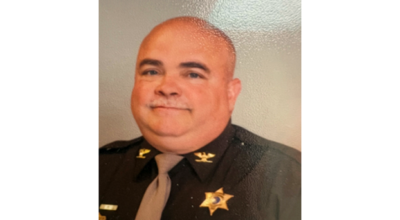Rotarian tells forgotten story of deadly maritime disaster
Published 10:06 am Friday, January 29, 2016
Maritime disasters such as the sinking of the Titanic or Lusitania are fabled tragedies known to many Americans, even decades after these vessels and their occupants were lost beneath the waves.
The tale of the largest seafaring accident that occurred in U.S. waters remains unfamiliar to many, however.
Dowagiac Rotarian and dentist Matt Cripe shared the story of the 1865 sinking of the Sultana, a tragedy that claimed the lives of an estimated 1,800 people, with the members of the Dowagiac Rotary Club during their weekly meeting Thursday at the Elks Lodge. Aided with a slideshow presentation and plenty of pictures, the former Rotary president told the audience about the days leading up to the boiler explosion that sank the giant steamboat and why the tragedy remains obscured in contemporary U.S. history.
The sinking occurred within a few weeks of a pivotal turning point in the country’s history — the conclusion of the Civil War beginning with the surrender of Gen. Robert E. Lee at Appomattox on April 9 and the assassination of President Abraham Lincoln on April 15.
It was docked in Cairo, Illinois, on the morning following the president’s murder that the captain of the Sultana, J. Cass Mason, decided to make the trip down to New Orleans to distribute newspapers about the event to people living in the former Confederacy, Cripe said.
“Most telegraph lines are down — they’re destroyed,” Cripe said about the conditions down south at the time. “Any news regarding what is going on around the country is more than welcome. They’re literally not getting news in the south.”
During a stop at Vicksburg, Mississippi, Mason cut a deal with the quartermaster stationed at the city, Lt. Col. Reuben Hatch, to transport around 1,400 Union prisoners of war held outside the southern city back up to the north. As the U.S. was paying between $5-10 per solider to any steamboat captain who returned POWs to the territory, both men saw it as an opportunity to make money.
After delivering cargo to New Orleans, the Sultana returned to Vicksburg to pick up the Union prisoners, many of whom were sick or starving. While Mason originally agreed to carry the 1,400 passengers — well in excess of the 376 people the ship was legally able to load — over 2,100 prisoners were taken aboard when the ship left port on April 24, Cripe said.
“So many passengers were loaded into the decks of the wooden-hulled steamer that the decks began to sag,” Cripe said. “The crew went down and had to enforce the floors with beams to prevent them from collapsing.”
Compounding the issues facing the vessel on its way back north was the fact it was traveling upriver during one of the worst spring floods in the Mississippi River history, Cripe said. Shortly after unloading cargo in Memphis, the boat resumed its ill-fated journey during the early morning hours of April 27 — marking the last time it would ever reach port again.
Around 2 a.m. that morning, just 7 miles north of the Tennessee city, three of the ship’s four vessels exploded near simultaneously, killing hundreds of passengers and crew instantly while raining hot coals onto the decks above, Cripe said. With the ship on fire and rapidly sinking, many of the surviving passengers had to swim to safety, since the one lifeboat on board sank due to overcrowding.
“Since the men are too weak to swim — or don’t know how to swim — they could choose between burning, drowning or death by hyperthermia,” Cripe said.
In all, around 1,800 people, including the captain, were lost in the accident. Corpses from the accident were found as far as 200 miles away from the sinking.
With Col. Hatch resigning from service shortly after the accident, no one was ever held accountable for the tragedy, Cripe added.
Despite the high death toll, the event was overshadowed in its day by other events going on at the time, including the killing of Abraham’s assassin, John Wilkes Booth, the day prior, Cripe said. The sheer death toll of Civil War had also desensitized many to mass killings during that era, the dentist added.
“It’s not that America turned its back on the tragedy of the Sultana, it’s that so much other stuff was going on,” Cripe said. “And 1,800 killed just didn’t seem like a lot at that time.”






